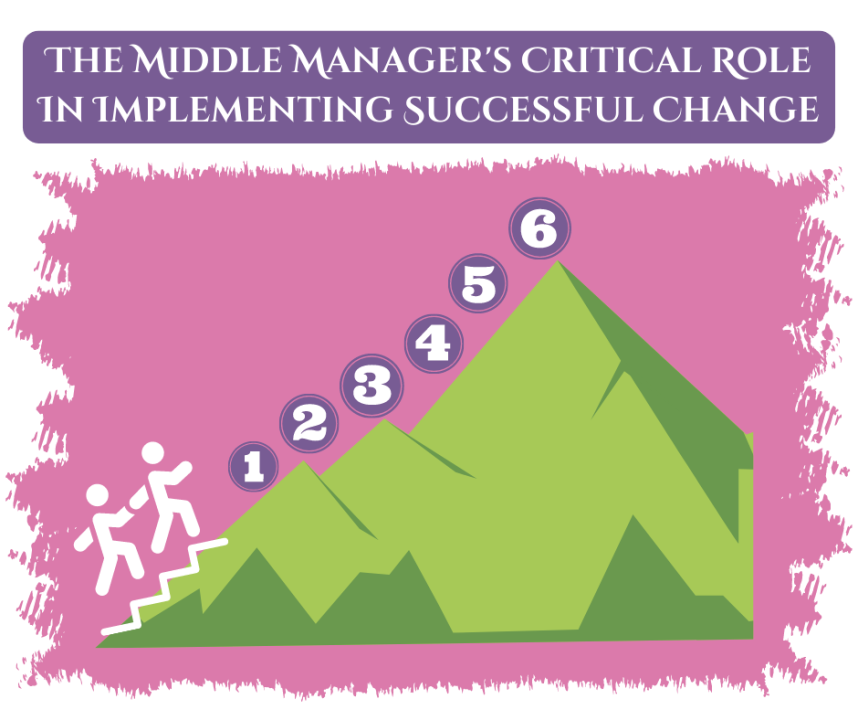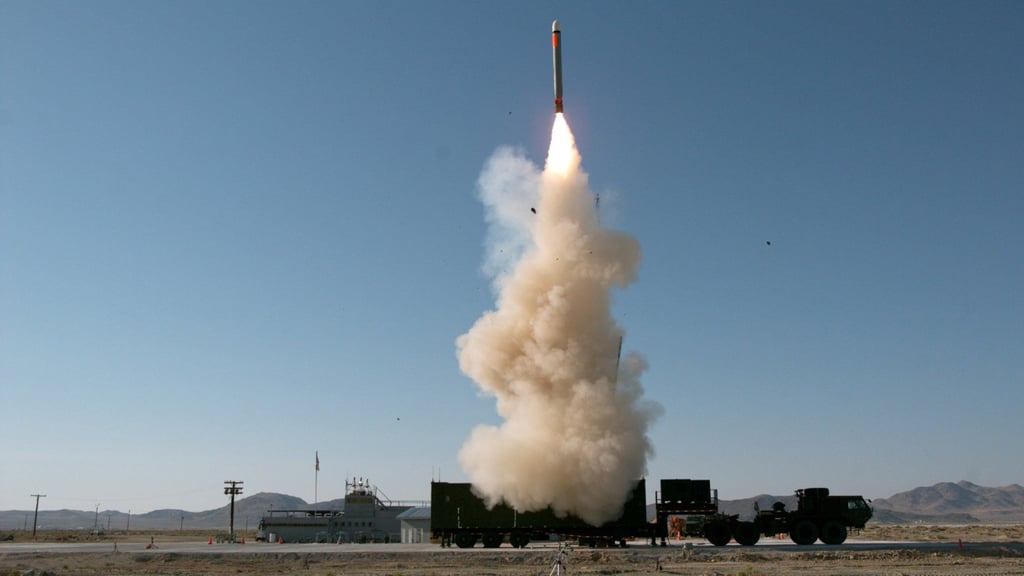The Crucial Role Of Middle Managers In Business And Employee Development

Table of Contents
Middle Managers as Bridges Between Leadership and Employees
Middle managers are not simply cogs in the machine; they are essential conduits for communication and champions of company culture. Their effectiveness directly influences the overall health and success of the organization.
Effective Communication and Information Flow
Middle managers are responsible for translating complex strategic directives from upper management into actionable plans for their teams. This requires strong communication skills and the ability to disseminate information clearly and concisely. They act as a vital feedback mechanism, relaying employee concerns and suggestions to senior leadership, ensuring transparency and fostering a two-way dialogue.
- Translating complex strategies into actionable plans: Breaking down high-level goals into manageable tasks and steps for individual contributors.
- Relaying employee feedback to upper management: Acting as a voice for the team and ensuring their concerns are heard and addressed.
- Ensuring consistent messaging: Maintaining alignment between communication from senior leadership and the understanding within individual teams.
Effective communication strategies, combined with robust information dissemination methods, are key to a productive and engaged workforce. Transparency builds trust, and open feedback mechanisms ensure that everyone is on the same page.
Championing Company Culture and Values
Middle managers are often the face of the company to their teams. They embody and reinforce company culture and values in their daily interactions, influencing employee engagement and morale significantly. Their leadership style directly impacts the work environment, creating a positive and productive atmosphere.
- Leading by example: Demonstrating the company values through their actions and decisions.
- Fostering a positive work environment: Creating a space where employees feel supported, respected, and valued.
- Reinforcing company values in daily interactions: Integrating company principles into team meetings, projects, and individual feedback sessions.
A strong company culture, championed by effective middle managers, leads to increased employee engagement and a more positive work environment. Values-based leadership creates a sense of belonging and shared purpose.
Middle Managers' Critical Role in Employee Development
Beyond communication, middle managers play a vital role in nurturing and developing their team members, fostering professional growth and maximizing individual potential.
Mentorship and Coaching
Middle managers are ideally positioned to provide valuable mentorship and coaching opportunities. They can identify individual strengths and weaknesses, offer constructive feedback, and help create personalized development plans that align with both individual aspirations and company goals. This supports career progression and ensures talent retention.
- Identifying individual strengths and weaknesses: Conducting regular performance evaluations and providing tailored feedback.
- Providing constructive feedback: Offering specific and actionable advice for improvement.
- Creating development plans: Working with employees to establish clear goals and strategies for professional growth.
- Supporting career progression: Identifying opportunities for advancement and providing guidance and support.
Investing in mentorship programs and coaching skills development for middle managers significantly improves talent management and enhances employee career development opportunities.
Performance Management and Feedback
Effective performance management is crucial for driving employee performance and development. Middle managers are responsible for setting clear expectations, conducting regular performance reviews, providing constructive criticism, celebrating successes, and addressing underperformance.
- Setting clear expectations: Defining roles, responsibilities, and performance goals.
- Providing regular performance reviews: Offering constructive feedback and identifying areas for improvement.
- Offering constructive criticism: Providing specific and actionable feedback to help employees improve their performance.
- Celebrating successes: Recognizing and rewarding employees for their accomplishments.
- Addressing underperformance: Providing support and guidance to help employees improve their performance.
Implementing robust performance management systems and effective feedback strategies is key to employee motivation and talent retention.
Delegation and Skill Development
Delegation is not simply about assigning tasks; it's about empowering employees and fostering skill development. Middle managers should assign tasks that challenge and develop skills, providing training and resources as needed. This creates a collaborative environment where everyone feels valued and empowered.
- Assigning tasks that challenge and develop skills: Giving employees opportunities to learn and grow.
- Providing training and resources: Equipping employees with the tools and knowledge they need to succeed.
- Fostering a collaborative environment: Creating a team atmosphere where employees can learn from each other.
By focusing on delegation and skill development programs, middle managers empower employees, improve team efficiency, and enhance the overall quality of work.
The Impact of Effective Middle Management on Business Success
The benefits of strong middle management extend far beyond individual employee development. It directly impacts the overall success of the business.
Improved Employee Retention
Strong middle management is a key driver of higher employee retention rates. When employees feel supported, valued, and mentored, they are more likely to stay with the company. This reduces turnover costs and improves overall productivity and morale.
- Increased employee satisfaction: A positive work environment leads to happier and more engaged employees.
- Reduced turnover costs: Lower turnover rates save the company time, money, and resources.
- Improved productivity and morale: Engaged employees are more productive and contribute to a positive work environment.
Effective employee retention strategies, facilitated by strong middle management, directly impact the bottom line.
Enhanced Productivity and Performance
Effective middle managers contribute directly to improved team productivity and overall business performance. Their ability to communicate effectively, mentor their teams, and manage performance leads to higher quality output, successful project completion, and achievement of business goals.
- Improved team efficiency: Well-managed teams work more efficiently and effectively.
- Higher quality output: Well-trained and motivated employees produce higher quality work.
- Successful project completion: Effective teams are more likely to complete projects on time and within budget.
- Achieving business goals: Strong middle management contributes to achieving overall business objectives and key performance indicators (KPIs).
Improving team performance and productivity is a direct result of effective middle management practices.
Stronger Organizational Culture
Effective middle managers play a critical role in shaping a positive and productive organizational culture. Their leadership style, communication skills, and commitment to employee development create a sense of community, collaboration, and innovation.
- Increased employee engagement: A positive and supportive culture leads to more engaged employees.
- Improved collaboration: Teams work together more effectively when they feel supported and valued.
- Stronger team cohesion: Stronger teams are more likely to achieve their goals.
- Higher levels of innovation: A positive and supportive culture encourages creativity and innovation.
A strong organizational culture is built from the ground up, and middle managers are essential architects of this culture.
Conclusion
In conclusion, the crucial role of middle managers in both employee development and business success cannot be overstated. Their ability to effectively communicate, mentor and coach their teams, and manage performance has a direct and significant impact on employee retention, productivity, and overall organizational culture. Invest in your middle managers to unlock the full potential of your business and employees. Strengthen your middle management team for improved employee development and organizational success. Effective middle management is vital for achieving your business goals. Consider investing in training programs, mentorship initiatives, and providing the resources your middle managers need to thrive. Only then can you fully realize the positive impact they can have on your entire organization.

Featured Posts
-
 Exploring The Potential Of Man Utds Latest Signing
May 20, 2025
Exploring The Potential Of Man Utds Latest Signing
May 20, 2025 -
 Mild Temperatures And Dry Weather Predicted
May 20, 2025
Mild Temperatures And Dry Weather Predicted
May 20, 2025 -
 Philippines Deployment Of Us Typhon Missiles A Detailed Analysis
May 20, 2025
Philippines Deployment Of Us Typhon Missiles A Detailed Analysis
May 20, 2025 -
 Is Big Bear Ai Bbai Stock A Buy After The Analyst Downgrade
May 20, 2025
Is Big Bear Ai Bbai Stock A Buy After The Analyst Downgrade
May 20, 2025 -
 Manchester Uniteds Pursuit Of Premier League Forward Newcastles Challenge
May 20, 2025
Manchester Uniteds Pursuit Of Premier League Forward Newcastles Challenge
May 20, 2025
